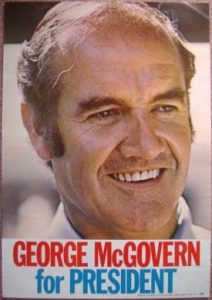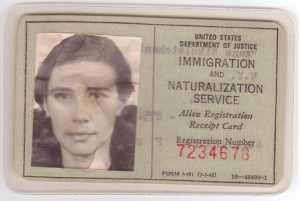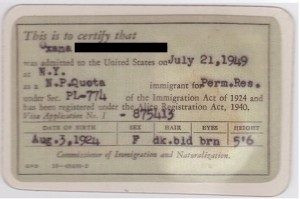The citizenship decision
In 1972, five years after I emigrated to the US clutching my hard-won Green Card, my official status was Resident Alien. I was required to register at the Post Office every January. If I wanted to leave the country, I had to prove that my income tax payments were up to date. I had to remain “of good moral character” and could be expelled if I had a run-in with the law. And I couldn’t vote.
Meanwhile, opposition to US involvement in Viet Nam was heating up. A turning point for me was the May 1970 killing and wounding of students by members of the National Guard at Kent State University, where students were protesting the secret bombing of Cambodia. As a history major, I already understood why interference in another country’s self-determination was bound to end badly. It was obvious to me as an outsider that the Viet Nam War was a disaster. Yet here in this supposed Land of the Free, it seemed that the authorities were beating up people who said so.
If I couldn’t publicly protest, and I couldn’t vote, at least I could help behind the scenes. I became interested in the anti-war policies of presidential candidate George McGovern, and began to volunteer in his California primary campaign. Here’s how I described my activities in a letter to parents:
June 2, 1972
I have been sticking my neck out in other directions lately too – have become very involved in George McGovern’s presidential campaign. I have put in some time at the campaign headquarters, and then got nailed to organise the local precinct. It is really rather fun, once I got over the initial panic. Support for him is very strong in this area, so I was lucky in the number of people I could con into working for me. Our house is going to be the headquarters for all 30 Cupertino precincts Tuesday (election day), so that should be interesting too. Am meeting all sorts of interesting people, especially the out-of-state students who are travelling around working for him. There are some neat kids amongst them.
McGovern won the nomination, but lost the November election to incumbent Richard Nixon. Meanwhile, I was feeling ambivalent about my own status. After five years in the US, a Resident Alien may commence the application process to become a citizen. Was I ready to do that? Could I turn my back on the land that had nurtured me and my ancestors? Could I pledge allegiance to a country whose foreign incursions I could not support? On the other hand, how badly did I want to share with my neighbors in making decisions about this place we all now called home? For most immigrants, this is a decision that requires careful thought and soul-searching. In the end, my husband and I decided to apply for citizenship. We didn’t know then how many years, frustrations and phone-calls it would take. But that’s another story.


It must be a difficult decision.
Hi Maureen, I am facing the same decision here on Australia. I have lived here some 40 years now and have enjoyed the same freedom as an Australian. I can vote as a permanent resident but could not go for office not that I want to.More later.Maxine
I’m lucky to be born an American and applaud you for sticking your neck out during one of the most core-destructive periods in our country’s history. I hope you will share what the citizenship process entailed.
I look forward to the rest of your path to citizenship story, too, Maureen.